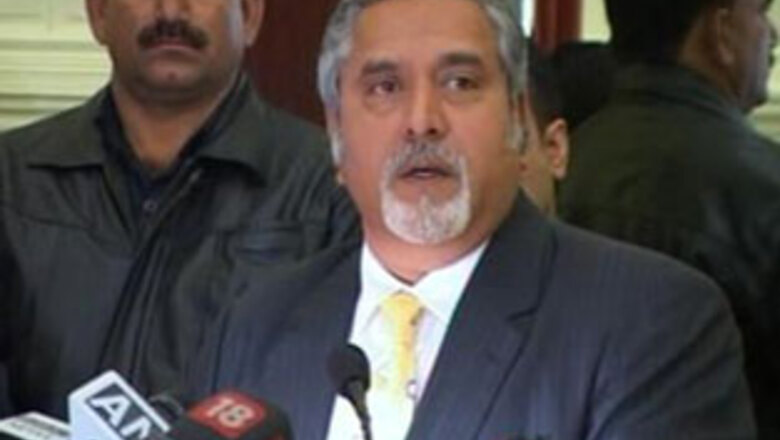
views
Vijay Mallya, Chairman of the UB Group, speaking on the group search for a strategic partner for Kingfisher Airlines, said he is in discussion with more than one suitor and that Diageo is one on them. He said it is premature to speculate on the timeframe of the deal.
Mallya added he has already signed a confidentiality agreement and is in talks with a PE investor for raising USD 400 million for Kingfisher Airlines. He said negotiations with PE investor can continue regardless of FIPB approvals.
Here is a verbatim transcript of the exclusive interview Vijay Mallya on CNBC-TV18.
Q: What is going on with Diageo and are there other potential suitors that you are actually in conversation with?
A: I am in conversation with more than one suitor. Diageo is a fine company with an excellent portfolio of global brands. We are in active discussion. But I think it is rather premature to speculate on a potential deal either in terms of timeframe––will it or won’t it happen?
I think we all have to recognise that large international companies, which Diageo is, listed both in the US as well as in England, have to maintain confidentiality and be very careful about what they term as price-sensitive information. The first thing we both did mutually is sign a confidentiality agreement. So, I cannot tell you as much as you would love to know.
Q:So I am not going to get much out of you on this one?
A: I cannot tell you as much as you would love to know.
Q: But have things changed because we got an update from you about a week ago. We have heard CEO Paul Walsh reiterating that Diageo would look for alliance and joint ventures where it has a controlling stake. There have also been question marks on regulatory hurdles. Have things really changed in the past week when we had the last update from you on it?
A: My last update really was that to tell you that things were going well. I have just returned from London this morning and I want to tell you that they are still going well. Yes, there are regulatory issues but we will overcome these.
As far as Diageo controlling the company is concerned, we haven’t even discussed it. They recognise that they need a strong Indian partner, such as myself, to run this business in this country. After all, we would probably be 100 million case company next year, perhaps, the second largest in the world or perhaps even the largest and because we are a state controlled subject, dealing with 28 different states and 28 different excise policies requires a lot of local knowledge. I think Diageo respects that.
PAGE_BREAK
Q: You spoke to us a short while ago and you said that within six months you will honour your commitment of deleveraging the balance sheet. How do you propose to do that, if for instance, the deal with Diageo, whoever else that you are talking to, doesn’t work out? What are your plans as far as deleveraging the balance sheet is concerned?
A: Let’s put things in perspective. We had a loan sitting in Whyte and Mackay, which is a subsidiary of United Spirits. It is ring-fenced without any recourse to United Spirits in India. The loan is pounds 355 million payable in two tranches––one extending to seven years and the other to nine years.
Backed against that loan are whisky stocks valued at pounds 450 million quite apart from which are the production assets, the brands and everything else. So there is more than enough substance behind that loan within the company. Given the fact that it is repayable in seven to nine years, there is absolutely no pressure on that front.
If you look at United Spirits here in India, let’s look at its loan profile. We have Rs 1,500 crore of term loans and working capital loans, which for a company that sells revenues of about Rs 5,700 crore isn’t too much. In fact, it is entirely consistent with the size and the nature of the business. The second piece, which is the acquisition debt that we took to acquire Whyte and Mackay, is payable over a five-year term of which only two years has elapsed. So we still have three years more to go. Assuming we didn’t do anything, the company’s cash flows and profits are enough to service and pay back this loan.
But as I have confirmed to you, there is a lot of interest on the part of strategic investors, such as Diageo, and I am pretty confident that I will get the deal done.
Q: Let me move on Kingfisher Airlines now. We have seen what's happened as far as the FDI norms are concerned – foreign airlines cannot still come in and invest in Indian carriers. But what about PE investors? What about a strategic investor? Would that be an option that you are looking at this point in time? Have you had a conversation with somebody?
A: I have had a conversation. The conversation continues.
Q: And this would be a private equity investor?
A: That is a private equity investor, potential investor. Once again I am bound by confidentiality.
Q: Ballpark, in terms of the size of the deal?
A: We are talking about raising USD 400 million. But once again I continue to believe and I have said this publicly before that as strategic investor i.e. an airline, will obviously value another airline far appropriately.
PAGE_BREAK
Q: But you will have to wait for the next government to come and perhaps change the FDI guidelines for that dream to come through?
A: The next government is no more than a few months away and in India a few months is not a lot of time.
Q: So you would rather wait for that to happen as oppose to close the PE deal?
A: There is no pressure that I need to do a deal next week. Even a conversation with a PE investor is likely to take its own course. Due diligence has to be done; FIPB permission if required needs to be applied for. So it isn’t as if something’s going to happen by the end of March. So there is no harm in waiting for a couple of months and really getting the best value.
Q: So the PE deal is not closing at least till the elections are over are done with?
A: You need to realize that suppose there is an FIPB approval requirement – that takes its own course. Government should deliver a reply within 30-days of filing. We are not filing tomorrow morning, so I don’t think that three-months or four-month timeframe is out of the ordinary at all.
Q: This issue of pledged shares has been a sentiment downer as far as the markets are concerned. You have come out and clarified United Spirits’ position. Despite that and I quote from a brokerage report, “There are other assets that are pledged to security. The wide gap between the loan amount and the pledged stock value continues to make investors uncomfortable. How would you respond to that?
A: I only have to respond by saying that I completely disagree with the view of the analyst you have just quoted. I am not afraid of demonstrating skin in the game. If I have pledged the shares, I have demonstrated that I have skin in the game. But I am very sure about what I do.
The underlying securities or assets against those loans are robust and are fully capable of repaying the loans in full. The shares that are pledged are only for top-up and in my view are at no risk at all. So the question of overhang in my mind just does not exist.
This happened in 1990 when the media speculated about the UB Group financials and myself. I think I proved them all wrong. We sorted out Mangalore Chemicals and Fertilisers, got rid of Best & Crompton, got rid of Hindustan Polymer.
Q: Is this a good time to actually look at reorganisation some parts of your business?
A: In 2000, the same thing happened when I had assumed a lot of debt to significantly expand the breweries business. In fact we made five acquisitions. Once again there was a lot of speculation about the debt. Guess what, I did a deal with Scottish & Newcastle. UB’s price was Rs 160. We made a tender offer at Rs 575, deleveraged. I know what I am doing.
If I have leveraged, I have a flawless track record of repayment as well. So, pledged shares don’t bother me.
Q: Repayment out of the way – reorganization is that something that you’re looking at as you illustrated in the past? Is that something that you’re looking at this point in time?
A: Reorganisation is how you look at it. We have clear verticals of our business.
Q: Are you looking at getting rid of verticals that don’t seem to be doing it for you anymore?
A: We have always said that we will get rid of our non-core assets but at a price. These are not going to be thrown away at distressed values.
Q: Are you looking at anything at this point in time in terms of exit?
A: This market is not conducive to be a sellers market, is it? But as far as United Spirits is concerned, I don’t look at the stock price, I look at the intrinsic strength of the company – still growing at 25% plus – I mean 60% share of the first client sprits market in India. It has a huge value. That why people are interested in us.
Q: Let me come to Kingfisher Airlines. There have been concerns as far as the oil marketing companies (OMC) and the liabilities owed to the OMCs. We understand that you are in dialogue with the Ministry as well as the OMCs. Where do things currently stand? We believe that you have asked for an extension till the end of the year.
A: I am not used to discussing supplier relationships. But I’d like to clarify that when crude oil prices went up to USD 147 per barrel and we still had to pay this huge sales tax of average of 25%, all airlines or at least the three big ones built up huge dues to the oil companies.
We then met with the Ministry of Petroleum who very kindly agreed to a six-month repayment plan. Kingfisher’s dues at that time were just over Rs 800 crore. We have actually paid back Rs 495 crore. For the balance, I have sort extra time because of the fact that the economic downturn has meant that passenger traffic in India has slowed down 14% in January, which is public data. After the terrorist attacks in Mumbai, we had a huge amount of cancellations of foreign visitors. So, times have changed.
Q: Have you got any response from the Ministry in terms of an extension?
A: We have applied. The government cannot be pressurised to reply within a timeframe. But suffice it to say that all this speculation that we are on cash and carry and somebody has stopped supplies – you know the flights are in the air and there are no disruptions. Business is going on, revenue is being generated.
So, this sensationalism unfortunately is ill-founded. Yes, I am in dialogue. The oil marketing companies are our valued partners. I am sure we are also their valued customers. We will sort it out.












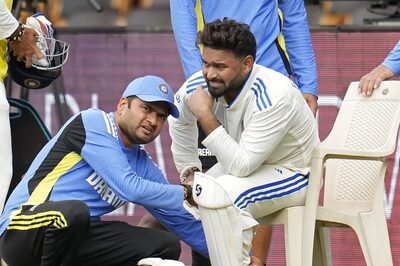

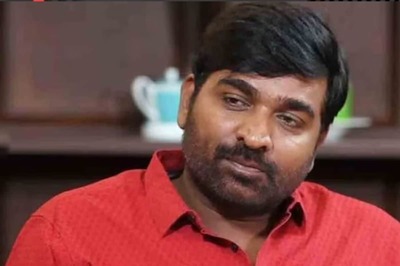
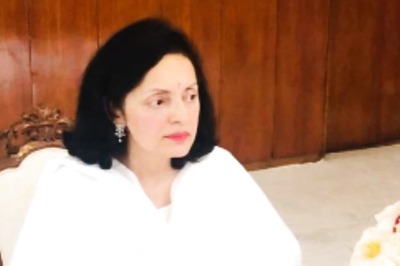
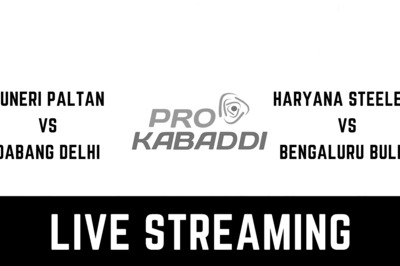
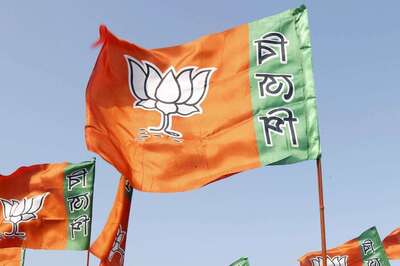
Comments
0 comment